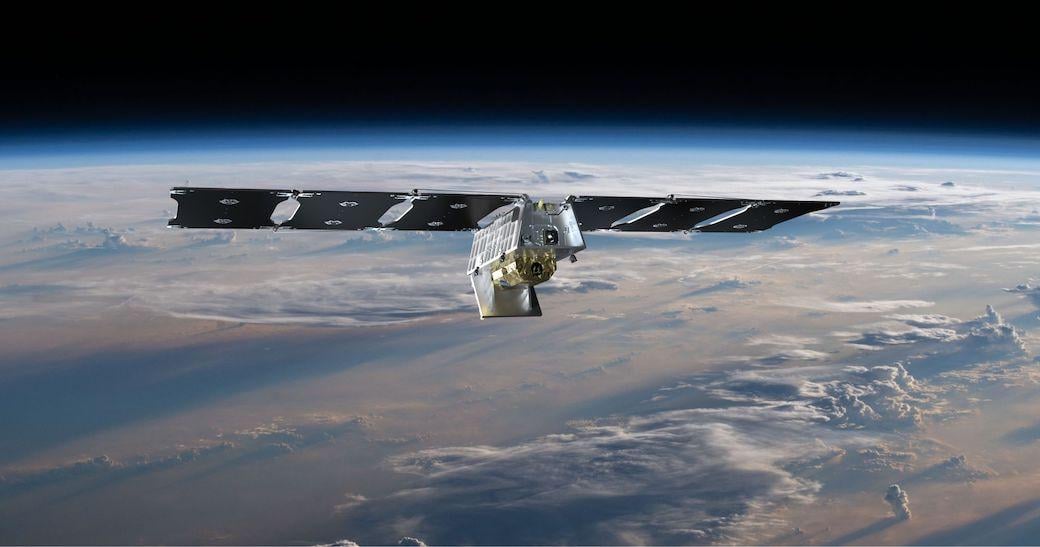
The First trio of FireSats would observe every point on Earth at least twice a day.
Muon Space plans a 2026 launch of its FireSat constellation, a group of small satellites designed to spot wildfires.
The constellation would be deployed into low-Earth orbit and initially comprise three satellites with 6-band multispectral infrared instruments onboard to find wildfires, the company said on May 6. Muon Space plans to launch a pathfinder FireSat satellite in 2025 ahead of the operational constellation.
The first trio of FireSats would observe every point on Earth at least twice a day, Muon Space says. It is anticipated individual satellites could observe a swath of 1,500 km (940 mi.) and detect fire ignition sites and hot spots as small as 5 m2, it says.
The startup eventually aims to deploy a full constellation of more than 50 satellites, which would allow it to revisit most of the planet every 20 min. and wildfire-prone areas every 9 min. The company says its satellites ought to allow firefighters to quickly and accurately map a blaze’s perimeter, intensity, direction and rate of growth.
The FireSat was developed in partnership with the Earth Fire Alliance, a non-profit that aims to distribute the constellation’s wildfire data, the startup says. The Earth Fire Alliance’s members include the Environmental Defense Fund, Google.org, the Gordon and Betty Moore Foundation, the Minderoo Foundation and Muon Space.
“We believe that high-fidelity data, equitably accessible on a global scale will help us more effectively reduce the negative impacts of wildfires, improve land management and recognize beneficial fire practices that contribute to more resilient communities,” says Brian Collins, executive director of the Earth Fire Alliance.
The nonprofit cites a finding within a Moore Foundation report that says billions of dollars of economic value can be created with even small improvements in response times to wildfires. It also points to the environmental benefits of quickly extinguishing blazes.





